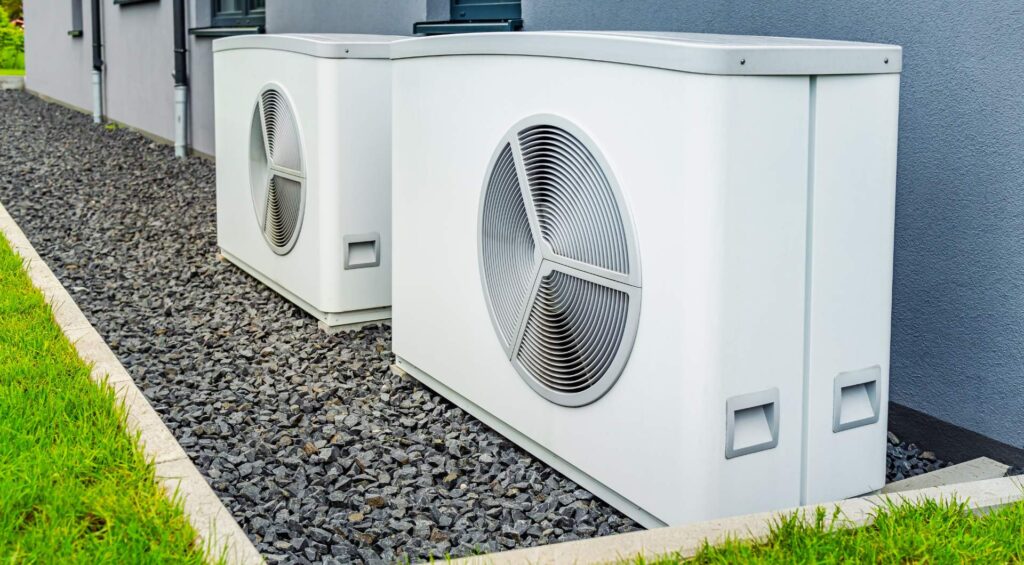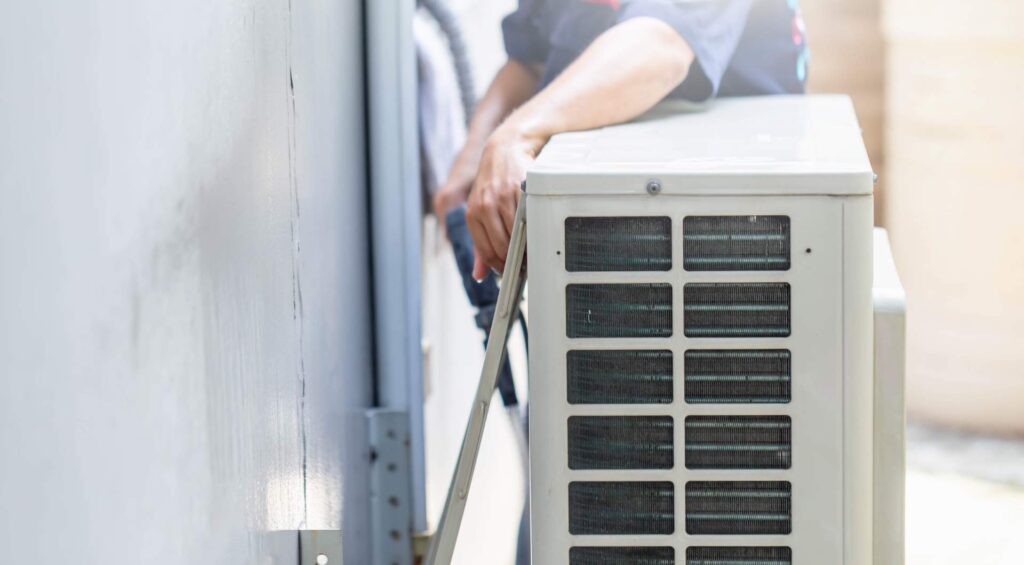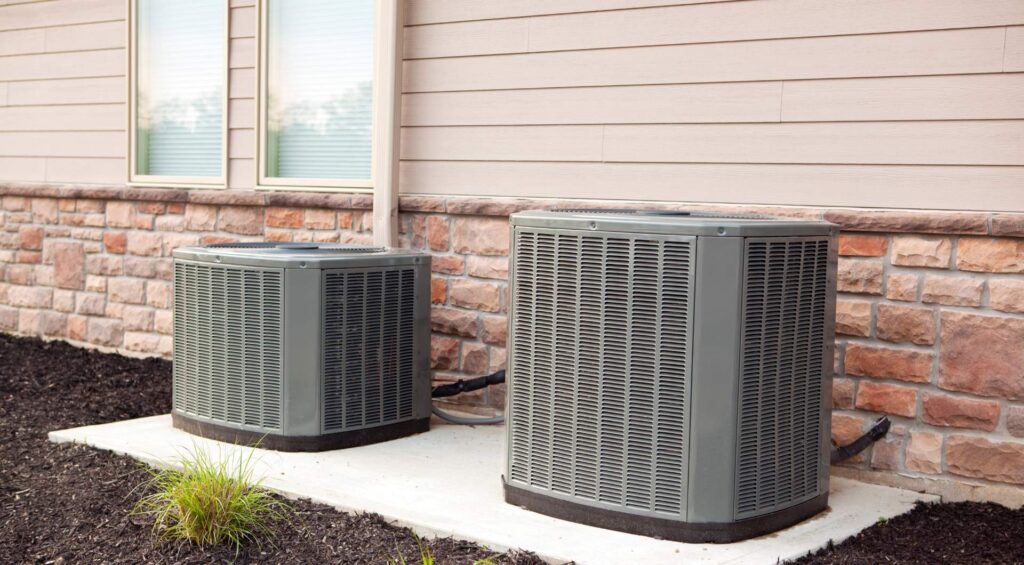Heat Pump vs. AC and Furnace: Which Is the Best Choice for Your Space?
Are you wondering whether a heat pump, air conditioner, or furnace is the best climate control option for your home or office? Nowadays many choices are available and deciding can be overwhelming. But you are not alone — AAA Heating and Cooling knows choosing the right system for your home or business can be tricky.
In this article, we will break down the differences between a heat pump, furnace, and air conditioner, helping you make the best decision for you and your family or business.
Table of Contents
- Heat Pump vs. Furnace vs. AC: What’s the Difference?
- 6 Factors To Consider When Deciding Between a Heat Pump vs. AC and Furnace
- Are Heat Pumps Better Than ACs and Furnaces?
- What Is the Downside of a Heat Pump?
- Is an Air Conditioner Better Than a Heat Pump?
- AAA Heating and Cooling: Portland’s First Choice for HVAC Installation, Maintenance, and Repairs
Heat Pump vs. Furnace vs. AC: What’s the Difference?
Heat pumps, furnaces, and air conditioners are all climate control systems; however, they all function and are installed and maintained differently. Heat pumps can both heat and cool a space, making this system versatile and energy-efficient. On the other hand, furnaces use fuel or electricity to provide a warm area. Finally, air conditioners remove heat and humidity making them ideal for hot and humid places.
Below you will find more detailed information about each system and its advantages. These concepts will help you further understand the available systems and AAA Heating and Cooling can help you choose the best one to fit your needs!
What Is a Heat Pump?
Heat pumps transfer heat from a cool space to a warm space. During the cooling season, heat pumps move heat from your house to the outdoors, and during the heating season, heat pumps move heat from your house to the outdoors. Since the heat is being transferred instead of generated, heat pumps only require electricity and are an energy-efficient alternative to furnaces and air conditioners. This system — the same one refrigerators use — can easily provide comfortable temperatures for your home with the use of electricity, making it the most eco-conscious option.
What Is a Furnace?
Furnaces heat air and distribute it through the house using ducts. They are a major component of a central heating system and are permanently installed to provide heat by moving an intermediary fluid—air, steam, or hot water.
Furnaces mostly use natural gas as a fuel source. Other common sources include fuel oil, wood, liquefied petroleum gas, and sometimes even coal. Depending on the cost of electricity or the appliance’s main purpose, some furnaces may even use electrical resistance.
Most modern furnaces can be up to 98% efficient.
What Is an Air Conditioner?
Air conditioners, often abbreviated as AC in the US, are designed to extract heat and humidity from a room or a building. They typically use a refrigeration cycle to absorb heat from the inside and release it outside, but sometimes this system uses evaporation, too. Some air conditioning systems can act as an air source heat pump by reversing the refrigeration cycle so they are called “reverse cycle air conditioners.”
Besides cooling the inside air, many modern air conditioners also filter the air by removing dust and other allergens. This improves air quality and enhances the comfort of people with allergies or who live in areas with high percentages of air contamination.
6 Factors To Consider When Deciding Between a Heat Pump vs. AC and Furnace
#1: Where You Live
When deciding which climate control system is the best for your home, consider the climate where your house, office, or building is located.
- Cold climate: Some areas have harsh winters so you will be better served by a combo air conditioner and gas furnace. This combo will work according to your needs. The air conditioner will provide cool and dry air in the hot seasons while the furnace can warm the area in the colder months.
- Moderate climate: If your area requires both heating and cooling, a heat pump could be a great choice for you! It provides a very energy-efficient option all year round if extreme outdoor temperature fluctuations are not expected. Since heat pumps have a reversing valve that allows the refrigerant to move in the opposite direction, this system adds and removes heat from the desired area without the use of extra space for multiple systems.
- Hot climate: Should you only require a cooling system because heating the space is not needed regardless of the season, a traditional AC unit could be the most cost-effective option.
#2: Potential Malfunctions
Unfortunately, heat pumps are more likely to experience malfunctions and breakdowns from the constant wear and tear. Because of its effectiveness in cold and hot temperatures, this type of system is normally expected to perform non-stop throughout the year causing a bigger and faster deterioration.
#3: Energy Efficiency
Even though heat pump devices and installation are more expensive than AC and furnaces, in the long term, the cost to run them is lower since they are the most efficient climate control systems. Therefore, the installation of a heat pump is an investment and it is usually promoted by several government agencies for their environmentally conscious results.
#4: Maintenance Requirements
Although heat pumps are very efficient and versatile, the fact that they can act as a type of heating and cooling system means that the device will be working all year round and it will need more maintenance. Depending on the location and the weather, most homeowners living in areas where heating systems are not required will not need to use their AC constantly, so this device tends to last longer and requires less maintenance.
#5: Available Space
If available space is a concern (and the weather in your area has wonderful mild temperatures), heat pumps are the best choice for you. This device eliminates the need for a heating system (furnace) and a separate cooling system (AC). Keep in mind that, regardless of the device you choose, the size will vary depending on the size of your home.
#6: System Lifespan
If you use an air conditioner and furnace combo, both appliances will share the work to provide the most comfortable temperature in your house. Most AC units can last up to 10-20 years on average!
During the colder months, your furnace will warm up your home; during the hotter months, your AC will keep the area cold and humidity-free.
However, heat pumps can replace the work of these two appliances and work during all seasons if fluctuations in the outside weather are not extreme. This benefit leads to a significantly reduced lifespan because of the non-stop work of this appliance.
Commonly Asked Questions About Heat Pump vs. AC and Furnace
Are Heat Pumps Better Than ACs and Furnaces?
As mentioned, heat pump systems are more energy efficient than furnaces and AC devices. Heat pumps are, on average, three times more efficient than other climate control systems, leading to a significant reduction in your heating bills.
But did you know that choosing heat pumps is also a great way to contribute to reducing heating emissions by more than 45% over the next 10 years? If you consider taking a step toward sustainable and eco-friendly options while saving money every month, heat pumps are the best option for you!
What Is the Downside of a Heat Pump?
Although heat pumps are considerably more expensive to install than AC and furnace systems, there are several financing options and tax credit incentives to choose this type of system compared to others.
Unfortunately, heat pumps are not suitable for every area. The effectiveness of these systems will significantly decrease unless your space is located in an area with mild weather. A heat pump’s efficiency is negatively affected when temperatures are below freezing.
Additionally, a heat pump’s primary power source is energy so power outages can impact the continuous operations of this system. A generator can be an easy solution and provide additional comfort in this not-so-common scenario.
Is an Air Conditioner Better Than a Heat Pump?
The decision between an air conditioner system and a heat pump depends on your specific needs and space characteristics, such as location. Climate plays a key role in deciding which option is the best for you. Air conditioners are more effective in hot climates where cooling is the primary concern and keeping a safe temperature inside is important for comfort and safety.
AC units can also have a great impact in areas with high percentages of humidity since they can dehumidify the inside air. In mild climates, heat pumps can solve two problems in one single system: heating and cooling according to the needs of each specific season.
AAA Heating and Cooling: Portland’s First Choice for HVAC Installation, Maintenance, and Repairs
As you navigate the different options for your home’s heating and cooling needs, it is important to choose a system that fits your climate, energy goals, budget, and comfort preferences. Whether you are leaning toward a heat pump, air conditioner, or furnace, understanding the differences can help you make an informed decision and ensure comfort at your home or office.
If you are in the Portland area and need expert guidance to decide what is best for you and your family or business, Portland HVAC company is here to help you. We offer top-notch HVAC solutions tailored to your specific needs and concerns. Contact us today and explore the best options in the market to enhance your home’s comfort!



